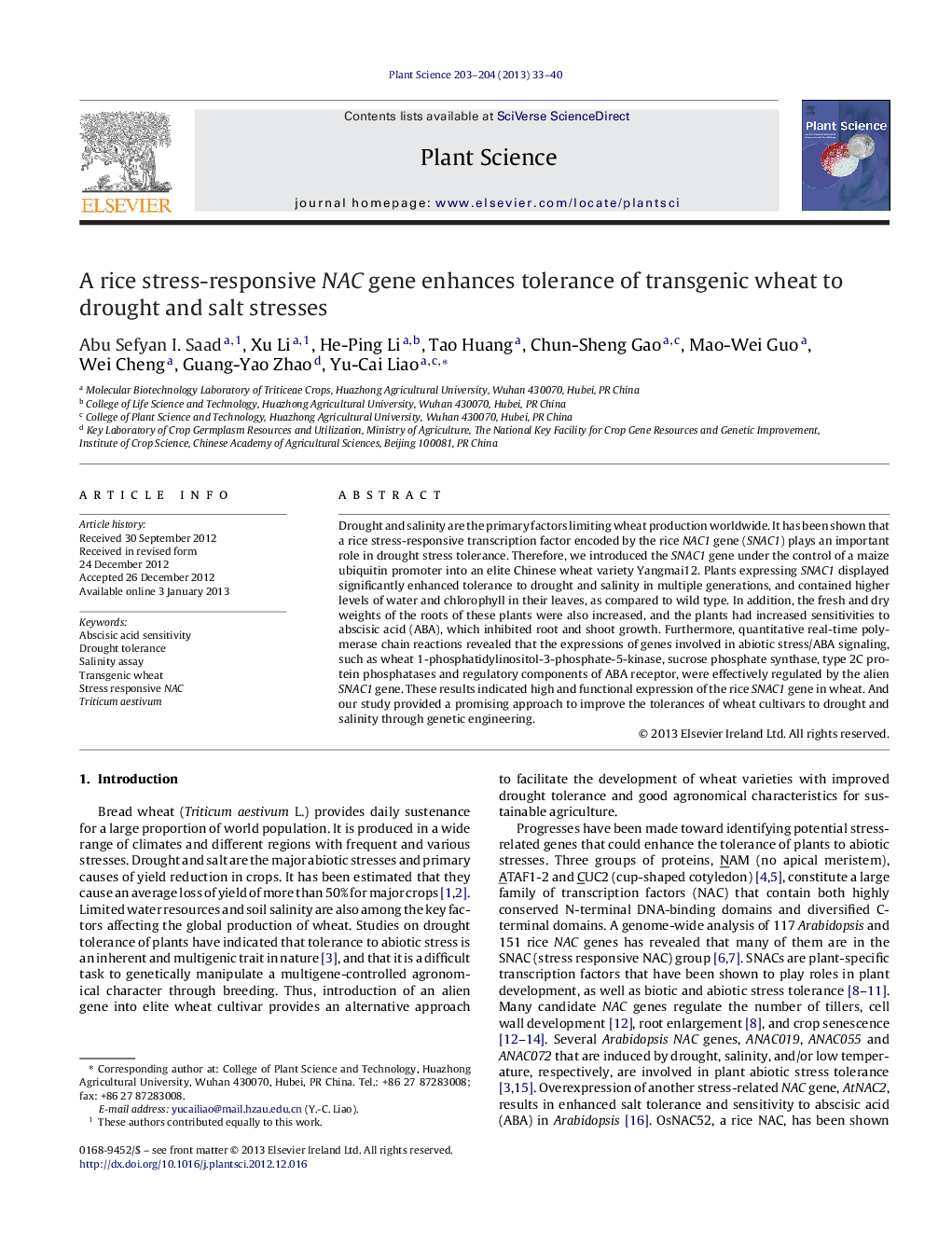| Article ID | Journal | Published Year | Pages | File Type |
|---|---|---|---|---|
| 2017207 | Plant Science | 2013 | 8 Pages |
Drought and salinity are the primary factors limiting wheat production worldwide. It has been shown that a rice stress-responsive transcription factor encoded by the rice NAC1 gene (SNAC1) plays an important role in drought stress tolerance. Therefore, we introduced the SNAC1 gene under the control of a maize ubiquitin promoter into an elite Chinese wheat variety Yangmai12. Plants expressing SNAC1 displayed significantly enhanced tolerance to drought and salinity in multiple generations, and contained higher levels of water and chlorophyll in their leaves, as compared to wild type. In addition, the fresh and dry weights of the roots of these plants were also increased, and the plants had increased sensitivities to abscisic acid (ABA), which inhibited root and shoot growth. Furthermore, quantitative real-time polymerase chain reactions revealed that the expressions of genes involved in abiotic stress/ABA signaling, such as wheat 1-phosphatidylinositol-3-phosphate-5-kinase, sucrose phosphate synthase, type 2C protein phosphatases and regulatory components of ABA receptor, were effectively regulated by the alien SNAC1 gene. These results indicated high and functional expression of the rice SNAC1 gene in wheat. And our study provided a promising approach to improve the tolerances of wheat cultivars to drought and salinity through genetic engineering.
► Stable integration and expression of a rice SNAC1 gene in elite wheat cultivar. ► Enhancement of drought and salinity tolerance associated with higher yield in transgenic wheat. ► Increased relative water and chlorophyll contents in transgenic wheat. ► Wheat plants over-expressing OsSNAC1 show enhanced ABA sensitivity. ► Regulation of endogenous genes involved in abiotic stress signaling in wheat by a rice SNAC1 gene.
